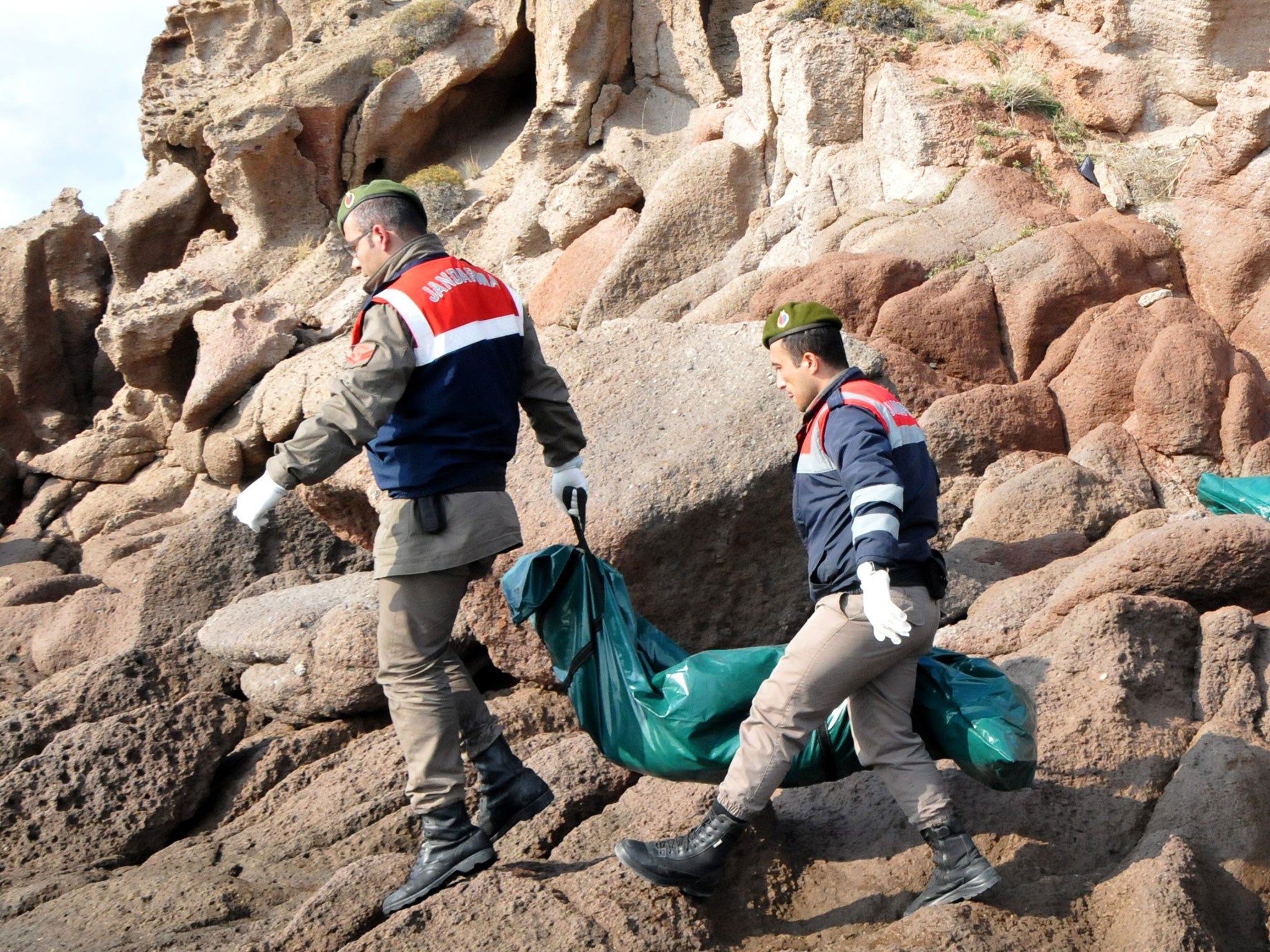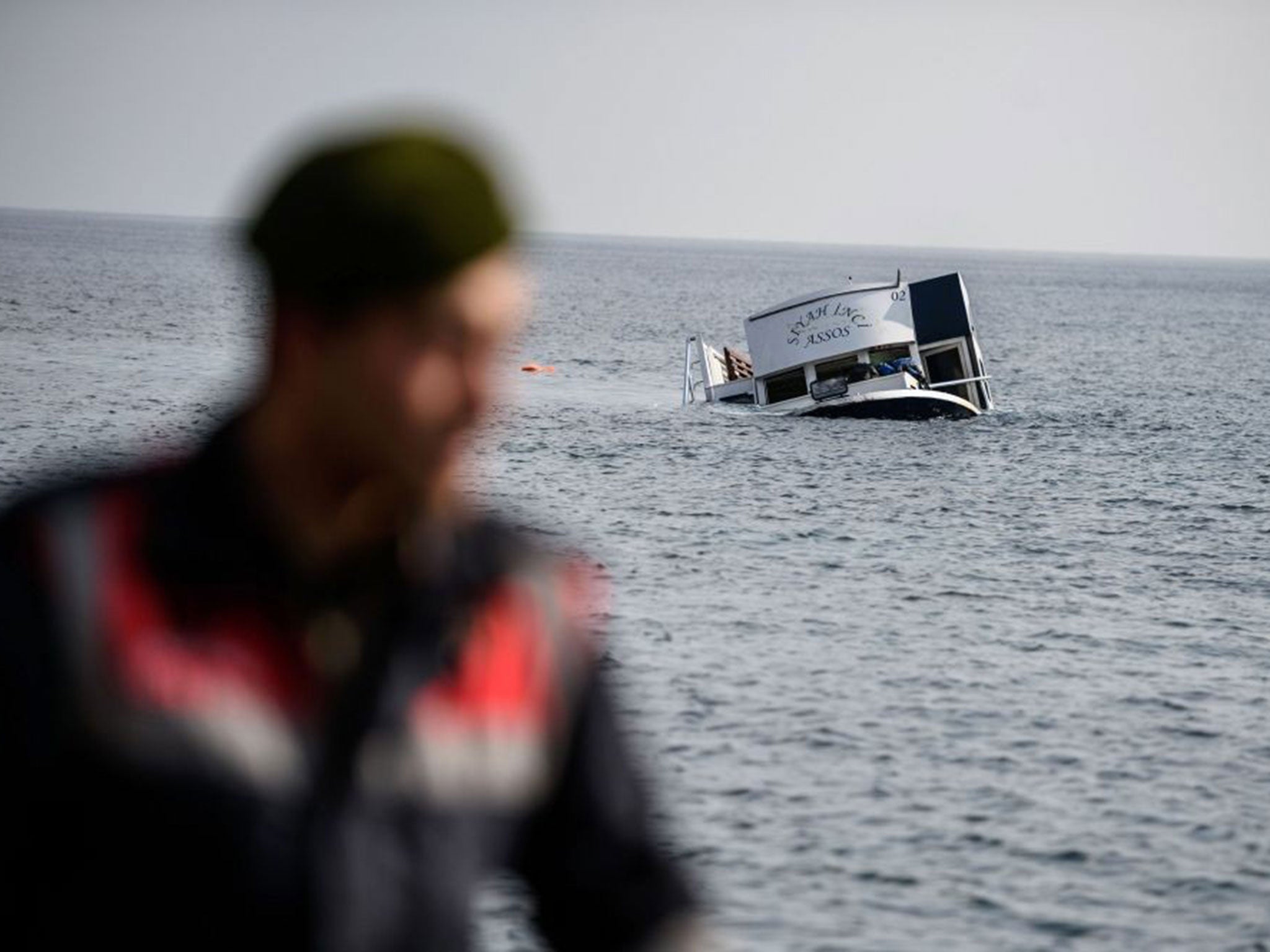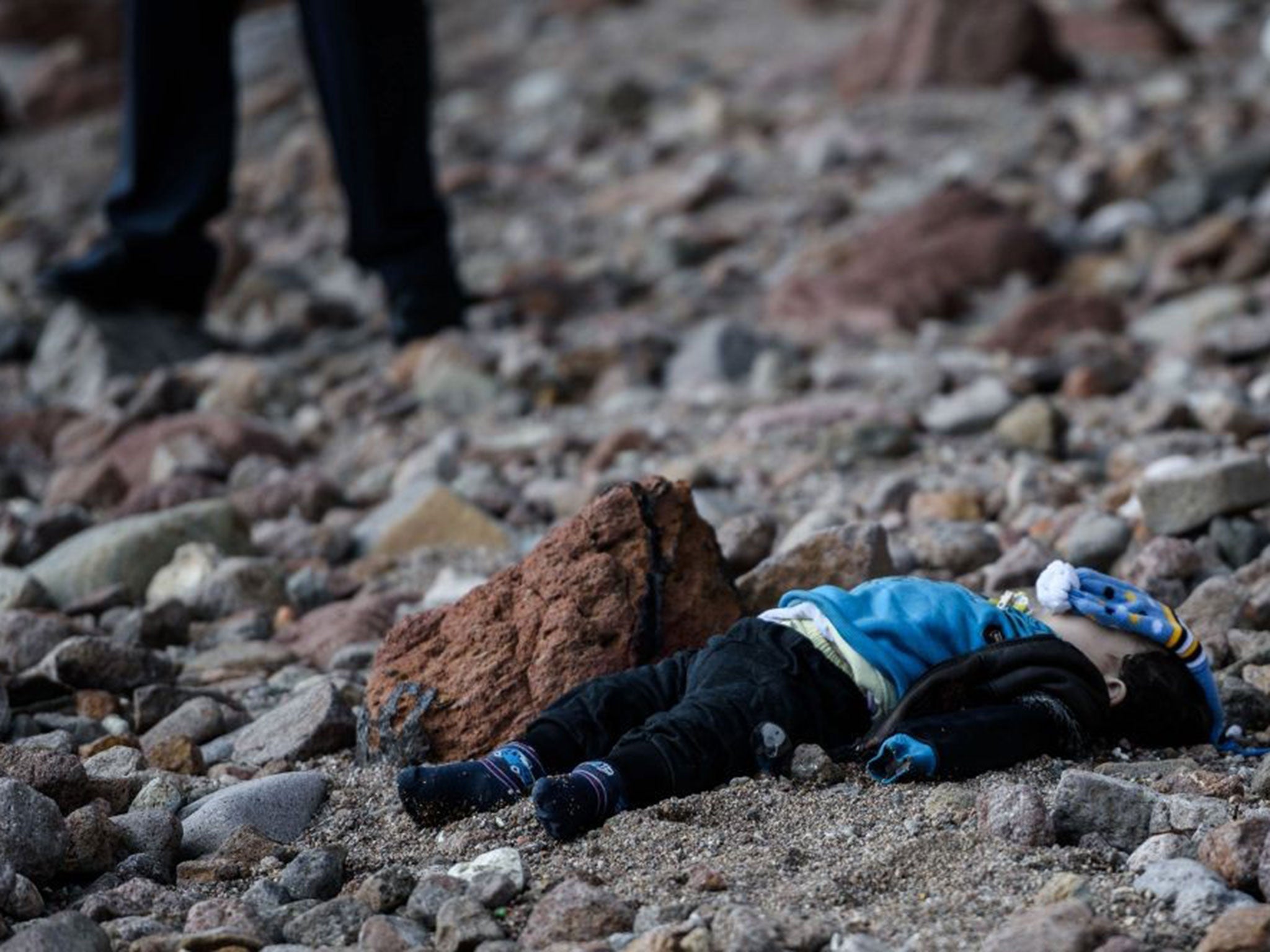Refugee crisis: Toddlers and children wash up dead on Turkish beaches after at least 39 drown in latest boat disaster
Officials expected the death toll to rise as divers continued searching for victims' bodies

Toddlers and young children are among at least 39 refugees who drowned in the Aegean Sea while trying to cross from Turkey to Greece overnight.
They were on an overcrowded smuggler boat that sank just metres off the shore of Ayvacık after hitting rocks.
Photos showed bodies lining beaches and coves, including children who appeared as young as two wearing life jackets and warm winter coats in preparation for the journey their families hoped to make to safety in Europe.
Warning: This article contains distressing images depicting death

Police were taking them away in black body bags this afternoon as divers continued to search the partially-submerged boat for more drowning victims who had been trapped inside.
Survivors were taken to hospital to be treated for hypothermia and other injuries, while some were detained for questioning.
The state-run Anadolu news agency reported the latest number of victims as 39 but officials declined to give an official figure as the toll of the latest disaster continues to be counted.
Saim Eskioglu, the deputy governor for Canakkale province, said more than 100 people had been packed on to the 56-foot vessel when it “hit rocks soon after it left the coast and, unfortunately, sank”.
“We believe there are more dead bodies inside the boat,” he told CNN-Turk television.
A Turkish man suspected of organising the deadly smuggling operation has been arrested.
Their intended destination of Lesbos lies just five miles away, but the journey across the narrow strip of water has claimed dozens of lives this week alone.

Recent disasters have also been recorded off the Greek islands of Kos and Samos, as well as near Sicily in Italy.
The International Organisation for Migration (IOM) says 218 refugees and asylum seekers died attempting to cross the Aegean in the first 28 days of this year.
At least 26 more drowned in the central Mediterranean in the same period, on another smuggling route from Libya to Italy.
The toll is almost triple that from this time in 2015, when the refugee crisis saw more than a million asylum seekers arrive in Europe.
Last year 3,400 deaths, peaking in April when 1,100 people died in a week in successive sinkings off the coast of Libya.
Individual disasters in the Aegean Sea have previously had a lower death toll than those in the central Mediterranean because of the small inflatable boats used by smugglers – but there are fears numbers could rise if larger boats continue to be used in rough winter weather.
Dozens of people are packed on to the overcrowded dinghys, which frequently sink or capsize in tragedies like the one that killed Alan Kurdi, his mother, brother and other passengers in September.
Images of the three-year-old boy lying dead on the beach sparked international calls for Europe to prevent avoidable deaths at sea and give refugees a safe home, forcing David Cameron to increase the number of Syrians being taken in by the UK.
But less than five months on, the political mood towards asylum seekers has reversed as countries across Europe seek to restrict the number of arrivals and implement controversial proposals to make them “pay for their stay”.
Thousands of migrants continue to attempt the treacherous sea journeys every day, fleeing war and persecution in Syria, Iraq, Afghanistan, Eritrea and across Africa and the Middle East.
Additional reporting by AP
Join our commenting forum
Join thought-provoking conversations, follow other Independent readers and see their replies
Comments